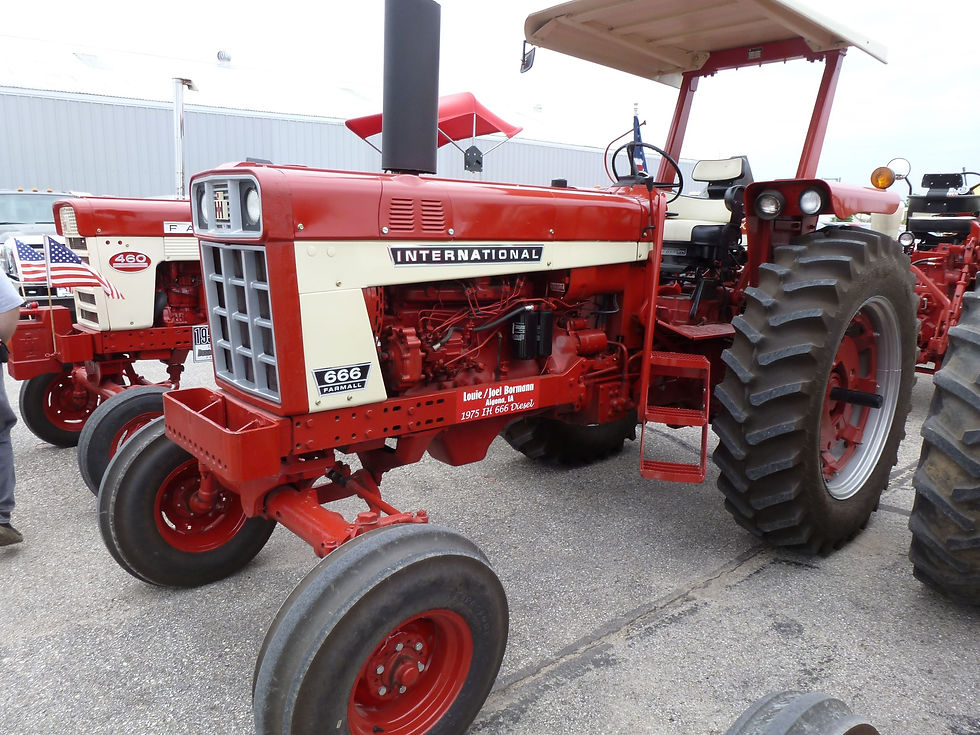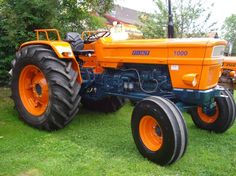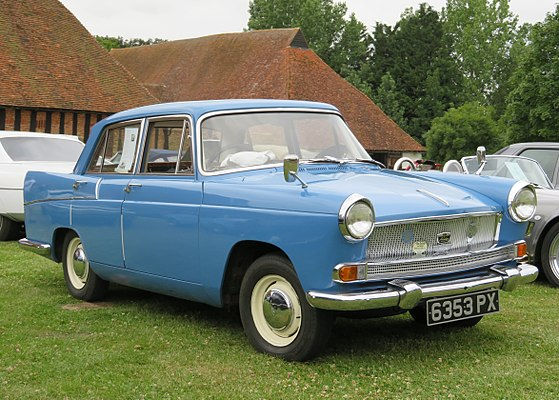
As I mentioned last week in our weekly family call we all got into a debate about energy, especially clean energy for the future. Selby, our son is an engineer while our new son-in-law, Nathan, is an aircraft engineer, both may know something about it, the rest of us just know what we know from reading other people's views. Obviously, some of these views are very well informed, while others, with the aid of the net, are self-proclaimed experts with little substantive knowledge. Unfortunately, it is very obvious the net is an ideal medium for charlatans to prosper and spread their unsubstantiated self-proclaimed knowledge.
“Those that shout the loudest are more often than not those that know the least. This ignorance can be taken a step further into illogical action inconveniencing others in their daily lives.” - Peter McSporran
I mentioned I avoided Dr Google when I was diagnosed with cancer, too much to absorb combined with too little self-knowledge to identify the fact from fiction. Perhaps I should stick to the same rule when it comes to all of the subjects I have little knowledge of? As many know, it has not stopped me from entering a discussion using both bullshit and a booming voice to get my point across. The below quote could easily refer to some of the quora I find myself in, arguing about subjects I have little clue about.
“One out of every three are as stupid as the other two.” James Hutchins I believe used it to describe Trump supporters.
I do not know what the fuel of the future will be. I support the theory that we have to do something about the increasing levels of pollution. I agree the human race in its endeavours to sustain its consumptive habits is in danger of destroying the world. I do not just mean the fuels we use, but the vehicles and all the utilities that require power. We take electricity or gas as something we simply switch on. In many parts of Africa having access to this ability is still a dream. Therefore the diesel pump and wood for cooking are a daily necessity and will be around for a long time to come. The West is busy boasting about how they will phase out fossil fuel cars within the next decade whilst quite happily exporting their older polluting models to Africa. The USA, Europe and Japan are the main culprits. These not only cause pollution from fuel, with more than a million used cars exported to Africa each year, that means over twenty thousand tonnes of near ‘dud’ lead batteries, never mind the pollution of the vehicle itself. In doing so, these exporters not only find a way to get rid of their old car problem, it also creates a market for all their obsolete spares still sitting on their shelves.
Of course on the positive side, this creates jobs in the form of taxi drivers, repair shops, panel beaters etc. A negative and positive is that it provides transport where there is none, negatively allowing African Governments to delay installing the required commuter infrastructure. To understand the obvious benefits of this infrastructure you only have to travel by train to Oliver Tambo airport in Johannesburg. A 30 minute trip on the Gautrain compared to the hours it could take by car before its installation. This is thanks to the 2010 Soccer World Cup being held there. Johannesburg traffic is nothing compared to Dar-es-Salaam, Accra, Lubumbashi, Lagos or Nairobi just to name a few. Those cities are becoming more polluted by the day mainly from used car and truck imports standing stationary in never-ending traffic chaos. I think the most unforgivable pollution must be caused by stationary or near stationary cars taking hours to travel very short distances. Do not switch the car off, the battery will probably only be fit to manage a couple of starts per day! Meanwhile, there is no real effort to improve the infrastructure, with many roads as they were at the end of the colonial era, prior to which only the odd European or commercial truck driver could be seen on the roadway.
So when the West boasts about its efforts, it would have more credibility if they helped others with their pollution problems rather than add to it. On top of everything, many of the cars are not roadworthy. Once again who cares? Someone else's problem. Road deaths in Africa are three times greater per capita than in Europe. Over-congested, unroadworthy cars and corruption allowing many unlicensed drivers to buy cheap cars. A few hundred dollars will allow a vehicle no better than a diesel-powered box cart on the road in many countries.
Phew! Getting back to energy, it would appear it always comes back to electricity. Even hydrogen fuel and fuel cells will require electricity to produce. I believe the cells as with batteries will also require rare earth minerals, another environmental and human disaster in raw material exploitation. In Africa, there are still opportunities for electricity to be generated by hydro. Heavy, short rainy season floods are ideal for filling hydro storage dams. Of course, dam locations must be chosen carefully to preclude environmental disasters.
Every time I visit the West Coast of Portugal I am amazed at the energy the ocean generates. Surely there must be some way we can harness that? That energy does not need the wind. The sun and moon ensure daily tides. Tides never miss a day, unlike the wind. Needless to say, it is sometime away before this technology is developed commercially.
In the meantime, I think we will have to rely on nuclear energy. Of course, many EU countries say they are going to phase out nuclear power, let's see now that the German election is behind us if this policy will remain? My son, Selby, tells me the Chinese are well ahead in using safer nuclear fuels, such as Thorium. Just mentioning this as I am relying on his knowledge. Meanwhile the same Chinese are building new thermal plants powered by coal. I think about thirty as I write while the UK is having a political spat over one. China presently runs in excess of a thousand plants; the UK has only three active. Despite this, China’s economic growth is about to stall due to the lack of energy and Britain is doing what Zimbabweans do best, queue for fuel. If the Chinese economy stalls, it will be a nightmare for their politicians and impact on world consumers.
“When survival is no longer a daily challenge the human race resorts to a frenzy of greed for the non-essentials status symbols such as large houses and cars. The larger the better. Forget how much energy they each consume.” - Peter McSporran
To me, unless everyone deals with the problem, we are just paying lip service to a huge global disaster. We need fewer cars on the road, we need cleaner cars on the road, we need efficient commuter services replacing road networks, we need to replace coal with nuclear as an interim at least.
Finally do not allow ‘them’ to blame the cows, methane, which is the gas they produce, has an atmospheric life of fewer than ten years while CO2 is there forever, in fact accumulating. The cows are one of the many red herrings in the mix. Unless there is global action, unilateral action will just benefit those countries, not heeding the future dangers.
I will continue to debate as it is a welcome relief from the serious state of affairs around us.
Great to have a rant! Needless to say, you will not find me among the selfish loonies lying on the M25. I often wonder if it is self-publicity or is it the cause that is most important. I fear the former.
Tractor Challenges and Car Woes
I would like to make a mention of my relationship with tractors in my early years in Africa. At Umzururu we had two types of tractors, International Harvesters (IH) and Fiats. The largest tractor we had was a Fiat 850, some 85HP deemed a big tractor in those days. Soil cultivation equipment was all made locally, so none of the broadacre equipment found in America or Australia was available. Disc ploughs and three tine rippers were the favoured tools, therefore there was no need for giant four-wheel drive tractors. Front-wheel assists were rare in those days.

William Baines supplied both the tractor makes we ran and despite our and their best efforts the IH’s preferred anthill starts to starter motor starts. It drove my boss Hamish mad. We had one Farmall tractor which was especially difficult. The Fiats were better. We would on occasion contract dedicated mechanics to service the tractors, this never ended satisfactorily. That meant we did our own repairs except for engine overhauls. This was done by removing the engine on the farm and swopping it out for a reconditioned one if available or repaired. I visited Stansfield Ratcliffe almost on a weekly basis for starter motor and alternator repairs. Baines for tractor repairs, CT Bolts for bolts and nuts, National Tyres for tyres, Rhodesian Bearings for bearings and Farmec for implements. These suppliers remained service providers throughout farming life in Zimbabwe. They had wonderful experts like Colin Campbell for tractors, Cyril Rimmer for balers, Peter Cloete for setting ploughs, Robin Swift and Graham Harden on farm equipment generally. To name a few.

Toni Panto at Nyabira carried out emergency repairs. His main tools of trade were a welder and hammer. Toni and his children were to be tragically killed when a bus ran over the top of their car while stopped due to smoke generated from a bushfire making sensible driving impossible, leaving his wife, a widow and the only survivor of the family.
In those days Hamish cropped about 300 hectares of maize at Umzururu and I think about 150 hectares at Bluff Hill. Yes, I grew maize on the land where West Gate shopping centre is now. My second year we introduced soya beans using the only variety available, Oribi. Yields were awful, anything over a tonne was considered good. For many years they were called ‘sorry beans’. Things have changed with four tonnes per hectare being common nowadays. Soil preparation and conservation methods did little to help with soya production. Typically following a crop we would graze cattle on the maize stover, finally burning off the remaining crop residue, in late winter before putting in the Fiat 850 or 650s with rippers and ploughs creating clods that would survive the next rainy season; they were so hard and large. Try combining a low seeding soya plant in those conditions. We always had excellent regrowth of soya bean crops while the farm children had plenty of time to dig for mice leaving another tractor hazard.
That winter of 1972 was the coldest I felt in my life. I just could not take this dry cold, I was used to the wet. Also, my winter clothes were sitting in Scotland. Who would have thought it gets so cold in Africa in winter?
They say the two happiest days of your life are when you buy a boat and when you sell that same boat. For me it was cars.
In deciding I needed to improve my social life, even meet a girl, I would require a car. This would also allow me to visit my sister in Chipinga as it was known at that time. Nyabira, our nearest village, in those days included four European families. One Greek, one Italian, one Jewish and one Rhodesian English along with a number of local Africans. Really multicultural. Toni Panto, the Italian who owned the local garage, was married to an Afrikaans lady, thus making the village even more multicultural. He suggested to me on one of my many visits for some repair job that he had just the car for me. That was an Austin Cambridge, I cannot remember the vintage only that it was old. He suggested a reliable vehicle even though old, proof being it was the favoured car in India where it was still being produced. In mitigation it was not his car, rather he was selling on behalf of a 3rd party. The price was some Rh$450, well beyond my means, earning only Rh$70 per month. To overcome this I decided to use the money I received in cashing in my return air ticket leaving about $100 to pay off over the next year. He sealed the deal by offering me new window wipers for free. This was to be my first and worst investment in monetary terms. Of course, to go anywhere by car in Rhodesia in those days you needed fuel coupons. One coupon was deemed a unit which if I remember correctly was five litres or a gallon. Two units just about got me to town and back. I think my allocation was six units so to get to Chipinga and back I needed to scrounge some twenty-five units, a major challenge in those days.

With the required coupons secured I set off proudly in my new car getting through Salisbury and Marandellas with a smile on my face. I was feeling so relaxed I even picked up a couple of foreign hitchhikers. Just before Macheke, on that long hill, all Zimbabweans will know, my oil pressure gauge dropped to zero shortly followed by a large noise from the engine. That is as far as she went, barely eighty miles from home. The Macheke garage collected my car, which I had not seen for over six months, while I was saving as hard as possible for the repairs which would only be carried out once cash was received. This broke me totally, each month I would be down to my loose change for necessities. Not enough left even for beer.
“We all think our era is having it tough, this is not true. Everyone and every era has its share of tough times. What may be considered minor to some may be major to others so do not dismiss someone else's anguish too readily.” - Peter McSporran
The Birth of AgDevCo
It became obvious to the chairman of InFraCo, Keith Palmer, myself and Han Derksen that opportunities were few and far between in investing in African agriculture. This was due to the fact that start-up patient capital was just not available to new agricultural project sponsors, especially those involved in primary agriculture. To this end, Keith convened a meeting in October 2008, in London. It was attended by Paul Cartwright, still working with me as a partner, Han Derksen and myself. We were joined by Chris Isaac, Keith’s right-hand man in a number of projects including Cambridge Economic Policy Associates (CEPA). While Paul and I still had a number of clients we were doing more and more work for larger blue-chip clients rather than farmers. At the same time, the duration of the scheme to move farmers to Zambia was coming to an end with the farmers now dealing directly with the banks themselves, the banks having strengthened their in-house agricultural capabilities. For myself after carrying out a few EU and World Bank consultancies, I was open to more exciting and worthwhile work. In the meantime, I had a close relationship with Phatisa being involved in their due diligence. Duncan Owen, the CEO and Valentine Chitala were keen for me to go full time with them, but I resisted as I had recent painful experiences of going into partnership with friends. I was already in partnership on a number of investments with them, some very successful, some not so, therefore decided to limit my exposure. They still remain good friends. However, I did declare my involvement with them to Keith and he felt we could work around any conflicts. At that time we gave the yet to be born entity the name Ag-Infraco, totally informal simply to give it an identity. Following this meeting Han, myself and Chris were to do a scoping mission around the region, specifically Tanzania, Zambia and Mozambique. I would do the actual physical visits while Han and Chris would put the proposed bones of the new organisation together on the back of my report. Keith funded the start-up while we all agreed to work at risk only expecting payment when and if we found funding. Thinking back on this, what a risk. As we were not planning to make profits, just be the conduit raising money for the funding of early-stage agricultural business development in Africa. Something completely unique. It was agreed the scoping trip should be in December, by light aircraft to allow flexibility. I called on the services of Peter Sheppard to travel with me as he had done some work in Mozambique along with having contacts in Tanzania. We were to set off in one of the hairiest flying adventures of my life ignoring Peter’s advice that it was the wrong time to fly, that being during the Intertropical Convergence. Peter still talks about our adventure to this day.
A closing thought in preparation for further discussion on investing in Africa.
“Success is the single most influential component in any organisation’s loss or partial loss in achieving its original aim. Yes, success brings sustainability through funding, these funds are always accompanied with strings to further the funding partner's aims.” - Peter McSporran
Disclaimer: Copyright Peter McSporran. The content in this blog represents my personal views and does not reflect corporate entities.
Comments